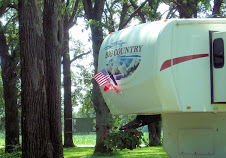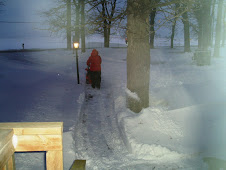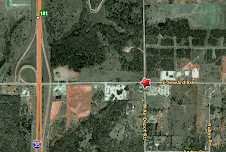Taking a short side-jaunt from the highway, I drove into Winslow, Arkansas, the Home of Gibson's Baskets.
This area has
been inhabited for 12,000 years. In the 1700s, the Osage
claimed
the land from the Arkansas
River
north
into what is now central Missouri. Although their main villages were
in Missouri, they traveled into Arkansas to hunt. In the early 1800s,
settlers began to move into the mountains.
Shortly
after the Civil War, Elijah Woolum established the Woolum-Brown Stage
Line between Fayetteville
and
Alma. A boon to the area, the stop became known as Summit Home.
The
town flourished in the 1880s with the arrival of the St Louis-San
Francisco Railway. Winslow-area residents found work harvesting
timber
for railroad ties and fence posts. Reported to be the highest
railroad
pass
on the line between the Rocky and Appalachian mountains, this made
Winslow a popular summer resort area. The Winslow Tunnel was
completed in 1882.
An
application to the Post Office Department on August 3, 1881, changed
the town’s name from Summit Home to Winslow, for Edward Winslow,
president of the St. Louis–San Francisco Railway.
Fort
Smith
physician
Albert Dunlap visited in the 1880s, built a home, moved his family to
Winslow, and encouraged his friends from Fort Smith to visit. In the
early 1900s, Thomas Harris, whose family originally came from
Illinois as summer visitors, developed Winslow Park Club on a
mountain east of town and started the Winslow's resort era.
In
1908, Gilbert and Maud
Duncan
bought
the Winslow
newspaper, the
Winslow
American;
it continued weekly until 1953.
Maud
Duncan was one of the state’s few female pharmacists at this time.
In 1925, she ran for mayor with an all-female city council and won.
The “Petticoat Government” was elected for a second term in 1926,
but the women declined to run for a third term.
In
the 1930s, drought ruined the
economy
more than the Depression. Marketable timber was disappearing and the
major crops, apples, strawberries, and vegetables, failed. As people
moved west the summer tourists disappeared. Over the next 30 years,
hotels closed, buildings were razed or burned and the town became a
shell of its former self.
When
the men left for World
War II,
the women took over as postmaster, depot agent, and ran the
businesses. At war's end, Winslow had nothing to offer the returning
soldiers, families moved, the population declined.
In
the late 1960s, the Winslow area attracted people looking to find a
simpler life by growing their own food and raising their children
away from the cities. The interstate by-passed the city by 7 miles
but cut the travel time to nearby cities. Today, the quaint village
of Winslow is a “bedroom community' for folks working in the
surrounding cities.
Looked empty and available -- didn't find a 'For Sale" sign.


















No comments:
Post a Comment